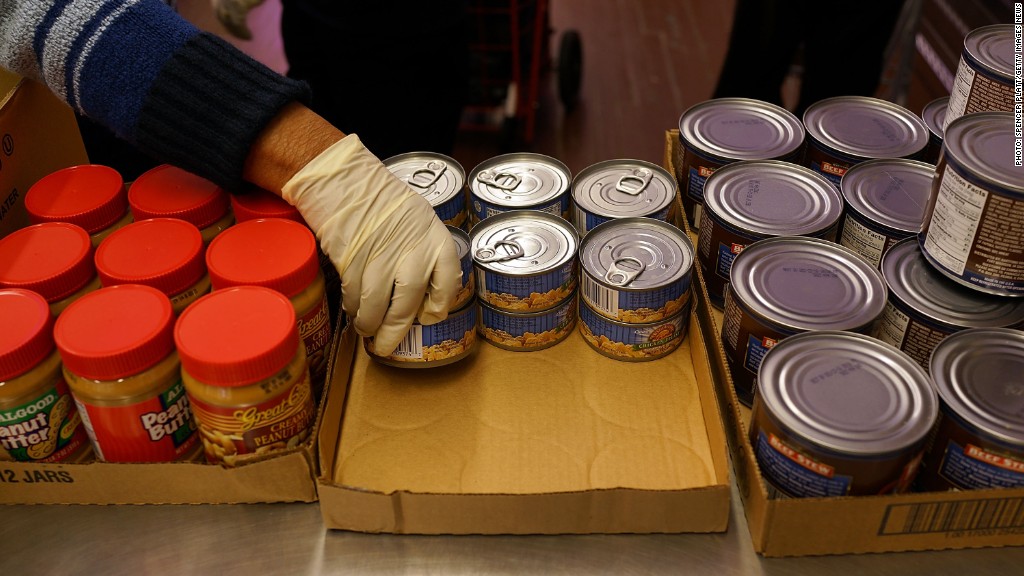
A side effect of the improving economy: About 1 million needy people will lose food stamp benefits starting this fall.
That's a new estimate by a left-leaning think tank, the Center on Budget and Policy Priorities, which is urging Congress to change a federal law that limits how long someone can receive food stamps when they are out of a job.
Under the Supplemental Nutrition Assistance Program, or SNAP, most adults without children can receive food stamps for only three months unless they are working or attending a job training program at least 20 hours a week.
The three-month period was designed in the mid-1990s as a compromise between lawmakers who wanted a safety net and those who wanted to give beneficiaries an incentive to work.
But during the recession, most states got a waiver of the three-month cap because unemployment surged.
Today, 42 states still have full or partial waivers from the cap, according to numbers from the Agriculture Department, which coordinates the federally-funded SNAP program.
And now as the economy is improving, the three-month limit is expected to kick in again in many states.
By the Center's estimates, that could cut off benefits for about 1 million adults, nearly all of whom fall below the poverty line.
"The loss of this food assistance, which averages approximately $150 to $200 per person per month for this group, will likely cause serious hardship among many," the report reads.
To get ready for the cutoff, states should "prepare heavily affected local communities" for increased demand at food banks and homeless shelters, the Center urged.


